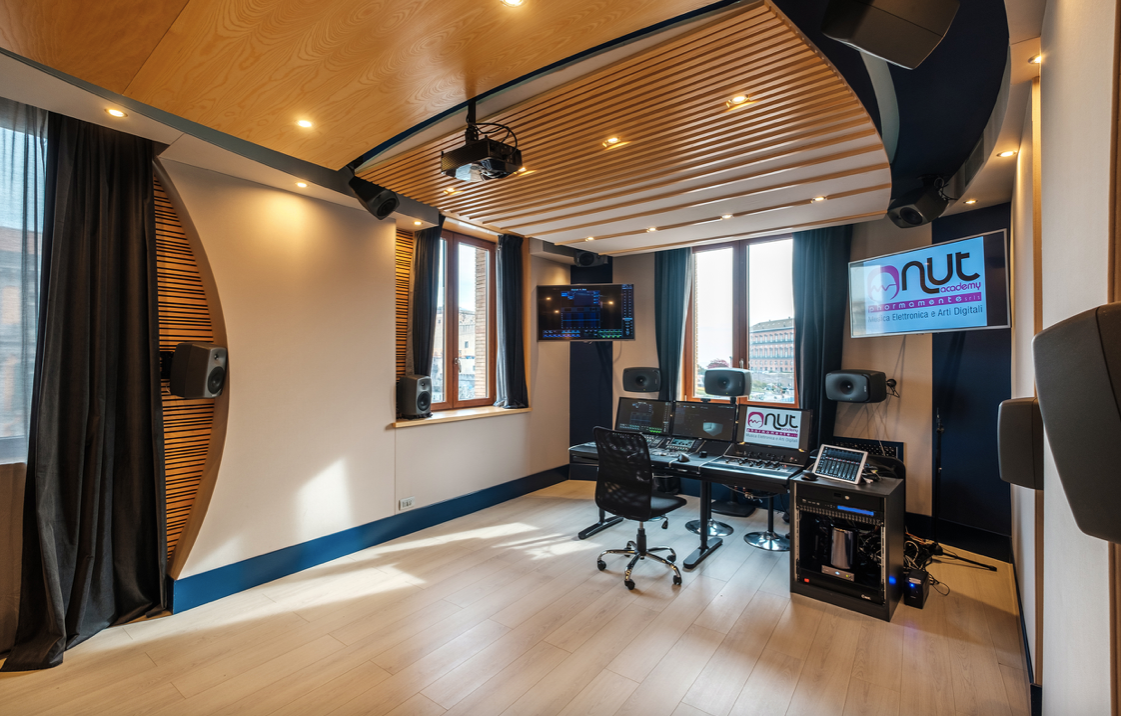Noise pollution is a significant concern in today’s urban environments, affecting the quality of life, health, and productivity of individuals and communities. Acoustic consultants play a vital role in addressing these noise issues by providing expert analysis, solutions, and strategies for noise control. This article explores how acoustic consultants assess noise problems, develop solutions, and implement measures to mitigate noise impacts.
Table of Contents
ToggleUnderstanding the Role of Acoustic Consultants
Acoustic consultants are professionals who specialize in sound and vibration control. They are typically trained in engineering, physics, or environmental science, with expertise in acoustics, noise measurement, and soundproofing techniques. Their primary responsibility is to analyze and address noise-related issues in various settings, including residential, commercial, and industrial environments.
Note: Clients who engaged Acoustic Consultants at Akinco experienced significant improvements in sound quality and noise control. The team provided tailored solutions to meet their specific needs. If you’re seeking expert advice, contact Akinco today to discover how our Acoustic Consultants can enhance your space!
Key Responsibilities
Acoustic consultants work on a range of projects, from designing soundproof spaces to conducting noise impact assessments for urban developments. They collaborate with architects, engineers, and project managers to create environments that meet legal noise regulations and enhance user comfort.
Identifying Noise Issues
The first step in addressing noise issues is to identify and assess the sources and impacts of noise. Acoustic consultants employ various methods to evaluate noise problems effectively.
Conducting Noise Surveys
Noise surveys are essential for understanding the extent of noise pollution in a given area. Acoustic consultants use specialized equipment, such as sound level meters and data loggers, to measure noise levels over specific periods. These surveys help identify peak noise times, sources of noise, and the affected areas.

Analyzing Noise Sources
Once noise measurements are collected, consultants analyze the data to determine the primary sources of noise. Common sources include traffic, construction, industrial activities, and even neighbor disturbances. Understanding the source is crucial for developing effective noise mitigation strategies.
Assessing Impact on Surroundings
In addition to identifying noise sources, acoustic consultants evaluate the impact of noise on surrounding areas. This assessment may involve measuring how noise levels change in relation to nearby residences, schools, hospitals, and other sensitive receptors. The goal is to understand how noise affects people and the environment.
Developing Noise Mitigation Strategies
After identifying the sources and impacts of noise, acoustic consultants develop tailored strategies to mitigate noise issues. These strategies can vary significantly based on the specific context and requirements of each project.
Designing Sound Barriers
One of the most common solutions for reducing noise is the construction of sound barriers. Acoustic consultants design these barriers to block or absorb sound waves, preventing noise from reaching sensitive areas. Barriers can be made from various materials, including concrete, wood, and specialized acoustic panels, and can be tailored to blend aesthetically with the environment.
Implementing Soundproofing Solutions
In indoor environments, acoustic consultants often recommend soundproofing techniques to minimize sound transmission between spaces. This may involve the installation of acoustic insulation, sound-absorbing materials, and specialized doors and windows designed to reduce sound leakage. The goal is to create a quieter and more comfortable environment for occupants.
Improving Architectural Design
Acoustic consultants work closely with architects to integrate noise reduction measures into the design phase of new buildings or renovations. This may include strategic placement of walls, windows, and doors to minimize noise exposure. Proper design can significantly enhance the acoustical performance of a building, reducing the need for extensive retrofitting later.
Recommending Operational Changes
In some cases, operational changes can help reduce noise pollution. Acoustic consultants may advise on scheduling noisy activities during off-peak hours or implementing noise-reducing practices, such as using quieter machinery or modifying work processes. These operational adjustments can lead to significant reductions in noise levels.
Implementing Noise Control Measures
Once mitigation strategies are developed, acoustic consultants play a crucial role in implementing these measures effectively.
Project Management and Coordination
Acoustic consultants often serve as project managers, coordinating with contractors, engineers, and other stakeholders to ensure that noise control measures are implemented according to plan. They monitor the progress of construction or modifications, ensuring that all specifications are met.
Conducting Post-Implementation Assessments
After noise mitigation measures are put in place, acoustic consultants conduct post-implementation assessments to evaluate their effectiveness. This may involve additional noise surveys to compare noise levels before and after the implementation of control measures. These assessments provide valuable feedback on the success of the strategies employed.
Adjusting Strategies as Needed
If the implemented measures do not achieve the desired results, acoustic consultants can recommend adjustments or additional strategies to further reduce noise levels. This iterative process ensures that clients receive the best possible outcomes for their noise-related issues.
Ensuring Compliance with Regulations
Noise regulations vary by region and often set specific limits on acceptable noise levels. Acoustic consultants are well-versed in these regulations and help clients navigate compliance requirements.
Conducting Noise Impact Assessments
For larger projects, such as construction or industrial developments, acoustic consultants conduct noise impact assessments to evaluate how proposed activities may affect the surrounding environment. These assessments are essential for obtaining permits and approvals from regulatory bodies.
Assisting with Regulatory Filings
Acoustic consultants help clients prepare the necessary documentation for regulatory filings related to noise control. This includes compiling data from noise surveys, impact assessments, and proposed mitigation measures to ensure compliance with local laws and regulations.
Liaising with Authorities
In some cases, acoustic consultants act as intermediaries between clients and regulatory authorities. They may present findings, provide technical explanations, and advocate for their clients’ interests during the permit application process. This advocacy can help streamline approvals and ensure that projects move forward without unnecessary delays.
Educating Clients and Communities
Beyond technical solutions, acoustic consultants also play a role in educating clients and communities about noise issues and the importance of effective noise management.
Providing Training and Resources
Acoustic consultants often offer training sessions and resources for clients, helping them understand the principles of sound management and the benefits of implementing noise control measures. This education empowers clients to make informed decisions about their noise issues.
Raising Awareness in Communities
In addition to working with individual clients, acoustic consultants may engage with communities to raise awareness about noise pollution and its impacts. They may host workshops, seminars, or community forums to discuss noise issues and encourage proactive measures for noise management.
Conclusion
Acoustic consultants play a vital role in addressing noise issues in various environments. From conducting thorough assessments to developing tailored mitigation strategies and ensuring compliance with regulations, these professionals provide essential services that enhance the quality of life for individuals and communities.
By effectively managing noise pollution, acoustic consultants contribute to healthier, more comfortable environments, allowing people to live and work without the adverse effects of excessive noise. As urbanization continues to increase and noise concerns grow, the demand for skilled acoustic consultants will likely expand, further emphasizing their importance in modern society. Whether through innovative engineering solutions, strategic design, or community education, acoustic consultants are at the forefront of addressing one of today’s most pressing environmental challenges.
